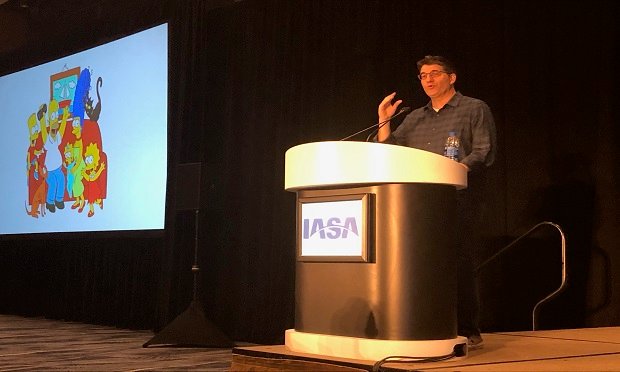 During his IASA 2019 keynote speech, screenwriter Joel Cohen from "The Simpsons" borrowed a famous quote from comedy icon Sid Caesar: "The guy who invented the wheel was smart… The guy who invented the other three was a genius." (Photo by Elana Ashanti Jefferson)
During his IASA 2019 keynote speech, screenwriter Joel Cohen from "The Simpsons" borrowed a famous quote from comedy icon Sid Caesar: "The guy who invented the wheel was smart… The guy who invented the other three was a genius." (Photo by Elana Ashanti Jefferson)
Insurance professionals and technologists immersed in the intricacies of transforming business models to be more consumer-friendly and digitally astute may find it difficult to draw a link between their work and the long-running animated television hit, "The Simpsons."
Recommended For You
Want to continue reading?
Become a Free PropertyCasualty360 Digital Reader
Your access to unlimited PropertyCasualty360 content isn’t changing.
Once you are an ALM digital member, you’ll receive:
- Breaking insurance news and analysis, on-site and via our newsletters and custom alerts
- Weekly Insurance Speak podcast featuring exclusive interviews with industry leaders
- Educational webcasts, white papers, and ebooks from industry thought leaders
- Critical converage of the employee benefits and financial advisory markets on our other ALM sites, BenefitsPRO and ThinkAdvisor
Already have an account? Sign In Now
© Touchpoint Markets, All Rights Reserved. Request academic re-use from www.copyright.com. All other uses, submit a request to [email protected]. For more inforrmation visit Asset & Logo Licensing.







